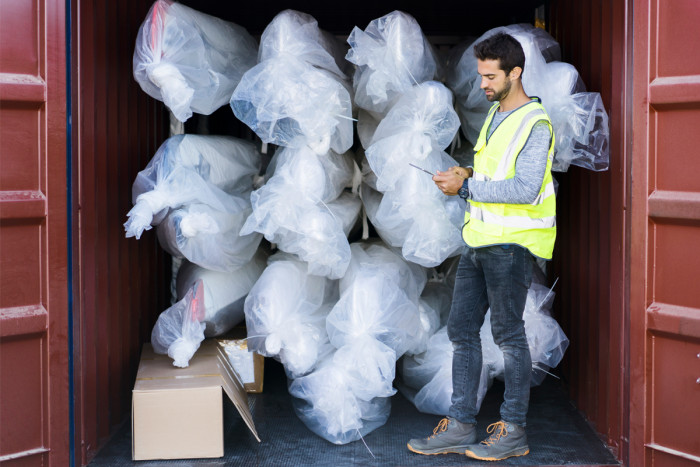Quarantine Officer
Āpiha Ārai Mate Hōrapa
Alternative titles for this job
Quarantine officers identify and control biosecurity risks at New Zealand's borders by inspecting goods and vessels arriving in the country.
Pay
Quarantine officers with up to three years' experience usually earn
$65K-$71K per year
Senior quarantine officers usually earn
$75K-$80K per year
Source: MPI, 2023
Job opportunities
Pay
Pay for quarantine officers varies depending on their skills and experience.
- New quarantine officers earn $65,000 a year.
- After one to three years' experience they usually earn $67,000 to $71,000.
- Senior quarantine officers with three to five years' experience usually earn $75,000 to $80,000.
- Chief quarantine officers can earn up to $97,000.
Source: Ministry for Primary Industries (MPI), 2023.
(This information is a guide only. Find out more about the sources of our pay information)
What you will do
Quarantine officers may do some or all of the following:
- inspect aircraft, sea vessels, mail and cargo arriving in New Zealand for illegal goods, insects and micro-organisms
- check aeroplane passengers and their luggage for illegal items
- make sure that incoming cargo shipments have the right documentation
- monitor and assess how effective biosecurity procedures are
- identify and report biosecurity breaches.
Skills and knowledge
Quarantine officers need to have:
- knowledge of goods from overseas that threaten the environment
- knowledge of quarantine rules and standards
- ability to carry out inspections and identify biosecurity risks.
Working conditions
Quarantine officers:
- do shift work that may include nights and weekends, and they may sometimes be on call
- work at all points of entry into New Zealand, including ports and airports. They also work in offices, international mail centres and baggage agent storage facilities
- may travel between worksites.
Entry requirements
To become a quarantine officer you need to:
- be a New Zealand citizen or permanent resident
- have a full driver's licence
- pass an Ishihara eye test (which tests for colour-blindness
- complete security and police checks
- pass a drug and alcohol test.
Secondary education
Useful subjects include biology, horticulture and agricultural studies.
Personal requirements
Quarantine officers need to be:
- enquiring and alert
- firm and fair
- observant, with an eye for detail
- safety-conscious
- good communicators
- able to relate to people from a range of cultures
- able to work well under pressure.
Useful experience
Useful experience for quarantine officers includes work in the horticultural, agricultural or forestry industries.
For quarantine officers working as dog handlers, experience in animal handling or veterinary nursing is also useful.
Physical requirements
Quarantine officers need to:
- be reasonably fit and healthy as they spend long periods standing
- have good eyesight (with or without corrective lenses)
- have normal colour vision.
Find out more about training
- Ministry for Primary Industries
- info@mpi.govt.nz - www.mpi.govt.nz
What are the chances of getting a job?
Opportunities for quarantine officers come up frequently each year.
There are usually many applicants for each vacancy. You can improve your chances of getting a job by having:
- at least two years’ experience in a related industry such as agriculture, horticulture or forestry
- a degree in horticulture, agriculture, botany, forestry or biological sciences
- a keen interest in protecting New Zealand from biosecurity threats
According to the Census, 759 quarantine officers worked in New Zealand in 2018.
One employer of quarantine officers
All quarantine officers work for Biosecurity New Zealand, a branch of the Ministry of Primary Industries.
Quarantine officers work at international airports, seaports and mail centres in their region.
Sources
- Hayes, C, senior marketing adviser biosecurity, Ministry for Primary Industries, careers.govt.nz interview, January 2021.
- Ministry for Primary Industries and Public Service Association, 'Collective Agreement', accessed November 2020, (www.psa.org.nz).
- Ministry for Primary Industries, 'Quarantine Officer Position Description 2018', accessed November 2020, (www.quarantineofficers.co.nz).
- Quarantine Officers website, accessed November 2020, (www.quarantineofficers.co.nz).
- Quarantine Officers website, 'Become a Quarantine Officer', accessed November 2020, (www.quarantineofficers.co.nz).
- Stats NZ, '2018 Census Data', 2019.
(This information is a guide only. Find out more about the sources of our job opportunities information)
Progression and specialisations
Quarantine officers may move into managerial or policy positions at the Ministry for Primary Industries.
Some quarantine officers specialise as dog handlers, working with sniffer dogs to inspect passengers, baggage, mail and cargo.
Last updated 12 December 2023

